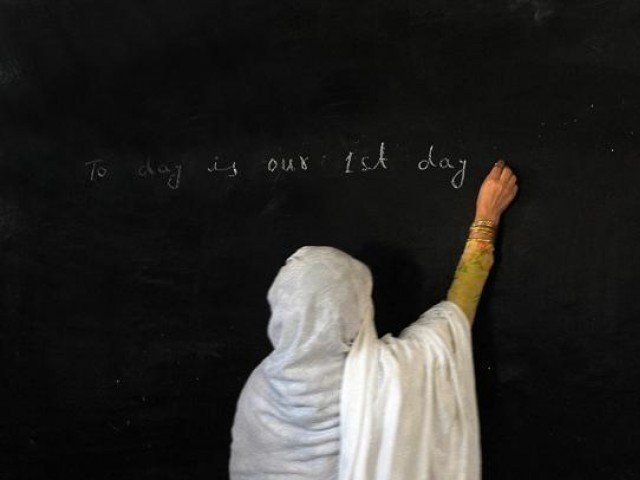PESHAWAR: Once seen as a spot troubled by terrorism, Civil Colony Khar is developing into a local hub of technical education thanks to an institute for women established by the federal government in the colony, located in Khyber Pakhtunkhwa’s Bajaur district.
Though the Women Vocational Training Centre (VCT) was originally set up in 2016 following the establishment of peace in the Bajaur tribal area, it has only become active over the past two years.
Apart from uplifting socio-economic status of women, the VCT is also reportedly changing social attitudes towards women and their role in society.
The area is witnessing change for women who are now allowed to go out for education in the VCT.
Read more: Revisiting the Fall of Dhaka
Razia Khan, who has lived a physically challenged life since birth, said “Being a woman and then living a challenging life is very difficult to convince my family to get a good education in an area like Bajaur.”
Razia is a graduate of the women’s technical education college where she learnt the tailoring trade. She told Bol News that she had never stepped out of her home but this institute encouraged and enabled her to learn technical skills which was now helping her to establish a business in the area.
Changing perceptions
She added that cultural taboos and challenges during education made it difficult for local women to empower themselves. “The people of the area previously never thought of allowing women to venture into business due to culture-related and safety issues. But now, we are witnessing change for women and girls to be allowed to go out for education.”
Razia shared her experiences of running a business in the area and stated that her family opposed the idea of her acquiring a technical education. “However, with the passage of time, my family was eventually convinced and happy to see my success in doing a home-based business in Bajaur.”
She is now earning and supporting her family.
“Now I am sewing clothes at home and even people from Peshawar contact me and ask if I could sew clothes for them. This helps me to support and feed my family and also helps support other people who rely on my business for their livelihood,” she added.
Read more: Gender parity
Razia says she is content with her education and business. “I would like to suggest to the government that women in tribal districts be given more assistance. We are still a vulnerable community and our living conditions are still not collectively improved. If the government established more such centres, it will help to uplift women of the area who have been affected due to terrorism.”
The institute started with short courses and then after a few years long courses including diplomas had been introduced regularly.
The institute is reportedly offering multiple educational programmes including computer short courses, sewing, textile designing, hand embroidery, hand and machine knitting and carpet weaving.
The centre has more than 750 women graduates, many of whom are now running their own businesses across the country.
Ambreen Mehsud, who hails from the southern belt of Waziristan, is the principal of the Women VCT in Bajaur. “The institute has so far trained many women and helped improve their living conditions in the tribal region,” she observed.
She however expressed concern over the precarious situation of women in the area. “This institute is also an escape for women who are victims of violence, landmines and even widows [who] are now running their own business in the area. Cultural limitations of the tribal area have created many problems. In the beginning, locals resisted the establishment of the institute due to the cultural taboos in the area. So we keep the issue of this limitation in mind because people over here are more sensitive when it comes to cultural preservation.”
Speaking about the curriculum and activities, Ms Mehsud further said, “We teach tribal women how to obtain loans from the government and we guide them about the process and departments that empower women. Moreover, we also link trained artisans to business firms outside of the district. In fact, we try our level best to give direction to women who were unable to leave their homes for work.”
She elaborated that new ideas to empower women had been introduced in the area through the institute. “This is for the first time that we have introduced and trained females in the carpet-weaving sector. Many women who have never used a computer are now trained in doing their jobs in different organisations across the country.”
She shared the success of the institute among locals and stated that female graduates from the centre were now feeding their families and their purchasing power had significantly increased. “These results are very encouraging and motivating for us. People in the tribal area are out of school and lack basic education so if they could be encouraged to acquire skills, they could be incentivised to earn and win bread for their families.”
The writer is a freelance contributor



















